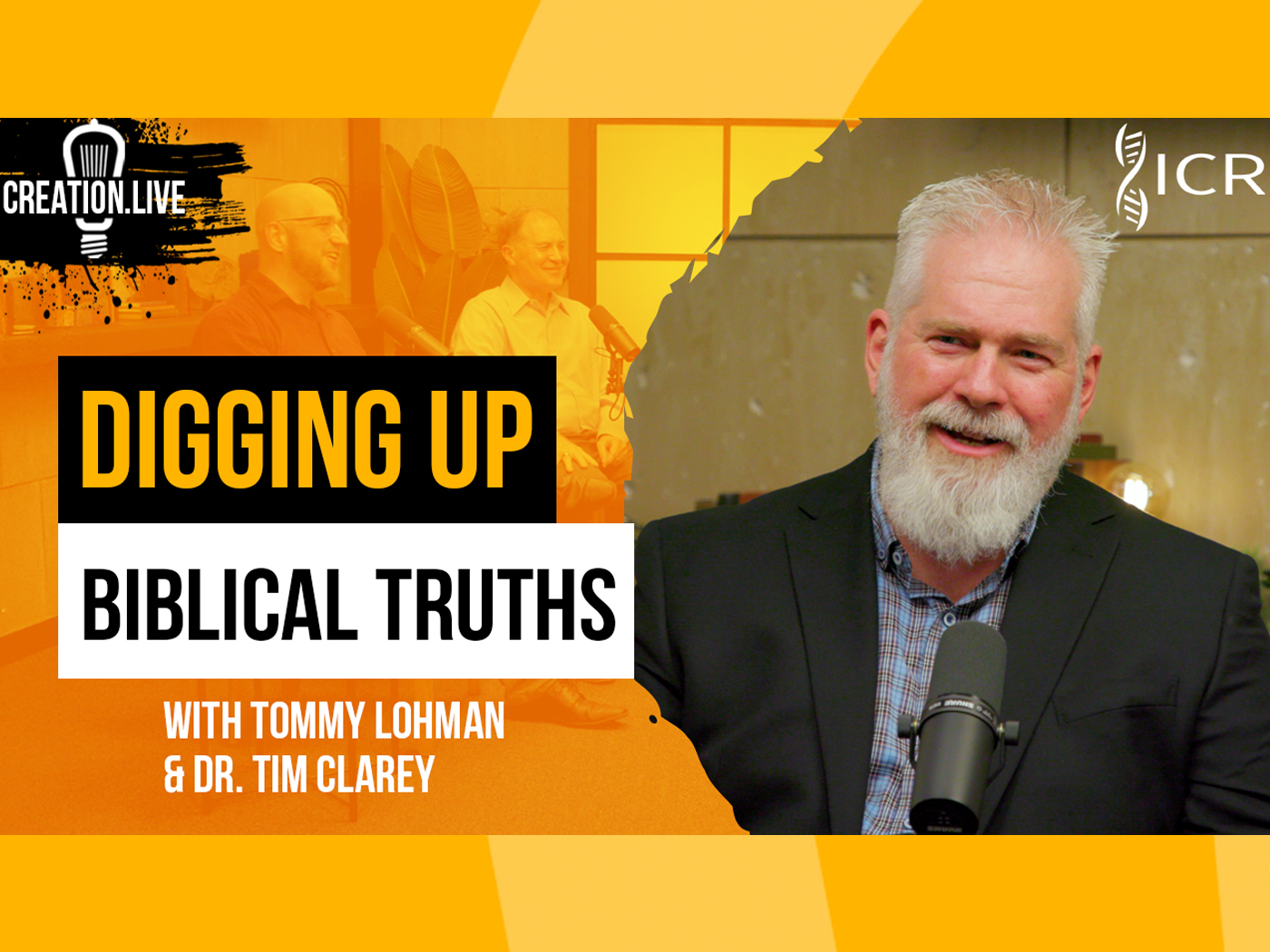Some people today, especially those of anti-Christian opinions, have the mistaken notion that the Bible prescribes permanent racial divisions among men and is, therefore, the cause of modern racial hatreds. As a matter of fact, the Bible says nothing whatever about race. Neither the word nor the concept of different "races" is found in the Bible at all. As far as one can learn from a study of Scripture, the writers of the Bible did not even know there were distinct races of men, in the sense of black and yellow and white races, or Caucasian and Mongol and Negroid races, or any other such divisions.
The Biblical divisions among men are those of "tongues, families, nations, and lands" (Genesis 10:5,20,31) rather than races. The vision of the redeemed saints in heaven (Revelation 7:9) is one of "all nations, and kindreds, and people, and tongues", but no mention is made of "races". The formation of the original divisions, after the Flood, was based on different languages (Genesis 11:6-9), supernaturally imposed by God, but nothing is said about any other physical differences.
Some have interpreted the Noahic prophecy concerning his three sons (Genesis 9:25-27) to refer to three races, Hamitic, Semitic and Japhetic, but such a meaning is in no way evident from the words of this passage. The prophecy applies to the descendants of Noah's sons, and the various nations to be formed from them, but nothing is said about three races. Modern anthropologists and historians employ a much-different terminology than this simple trifurcation for what they consider to be the various races among men.
Therefore, the origin of the concept of "race" must be sought elsewhere than in the Bible. If certain Christian writers have interpreted the Bible in a racist framework, the error is in the interpretation, not in the Bible itself. In the Bible, there is only one race—the human race! "(God) hath made of one, all nations of men" (Acts 17:26).
What Is a Race?
In modern terminology, a race of men may involve quite a large number of individual national and language groups. It is, therefore, a much broader generic concept than any of the Biblical divisions. In the terminology of biological taxonomy, it is roughly the same as a "variety", or a "sub-species". Biologists, of course, use the term to apply to sub-species of animals, as well as men.
For example, Charles Darwin selected as the subtitle for his book Origin of Species the phrase "The Preservation of Favoured Races in the Struggle for Life". It is clear from the context that he had races of animals primarily in mind, but at the same time it is also clear, as we shall see, that he thought of races of men in the same way.
That this concept is still held today is evident from the following words of leading modern evolutionist George Gaylord Simpson:
"Races of man have, or perhaps one should say 'had', exactly the same biological significance as the sub-species of other species of mammals." 1
It is clear, therefore, that a race is not a Biblical category, but rather is a category of evolutionary biology. Each race is a sub-species, with a long evolutionary history of its own, in the process of evolving gradually into a distinct species.
As applied to man, this concept, of course, suggests that each of the various races of men is very different, though still inter-fertile, from all of the others. If they continue to be segregated, each will continue to compete as best it can with the other races in the struggle for existence and finally the fittest will survive. Or else, perhaps, they will gradually become so different from each other as to assume the character of separate species altogether (just as apes and men supposedly diverged from a common ancestor early in the so-called Tertiary Period).
Most modern biologists today would express these concepts somewhat differently than as above, and they undoubtedly would disavow the racist connotations. Nevertheless, this was certainly the point-of-view of the 19th century evolutionists, and it is difficult to interpret modern evolutionary theory, the so-called neo-Darwinian synthesis, much differently.
Nineteenth-Century Evolutionary Racism
The rise of modern evolutionary theory took place mostly in Europe, especially in England and Germany. Europeans, along with their American cousins, were then leading the world in industrial and military expansion, and were, therefore, inclined to think of themselves as somehow superior to the other nations of the world. This opinion was tremendously encouraged by the concurrent rise of Darwinian evolutionism and its simplistic approach to the idea of struggle between natural races, with the strongest surviving and thus contributing to the advance of evolution.
As the 19th century scientists were converted to evolution, they were thus also convinced of racism. They were certain that the white race was superior to other races, and the reason for this superiority was to be found in Darwinian theory. The white race had advanced farther up the evolutionary ladder and, therefore, was destined either to eliminate the other races in the struggle for existence or else to have to assume the "white man's burden" and to care for those inferior races that were incompetent to survive otherwise.
Charles Darwin himself, though strongly opposed to slavery on moral grounds, was convinced of white racial superiority. He wrote on one occasion as follows:
"I could show fight on natural selection having done and doing more for the progress of civilization than you seem inclined to admit.... The more civilized so-called Caucasian races have beaten the Turkish hollow in the struggle for existence. Looking to the world at no very distant date, what an endless number of the lower races will have been eliminated by the higher civilized races throughout the world."2
The man more responsible than any other for the widespread acceptance of evolution in the 19th century was Thomas Huxley. Soon after the American Civil War, in which the negro slaves were freed, he wrote as follows:
"No rational man, cognizant of the facts, believes that the average negro is the equal, still less the superior, of the white man. And if this be true, it is simply incredible that, when all his disabilities are removed, and our prognathous relative has a fair field and no favour, as well as no oppressor, he will be able to compete successfully with his bigger-brained and smaller-jawed rival, in a contest which is to be carried out by thoughts and not by bites."3
Racist sentiments such as these were held by all the 19th century evolutionists. A recent book4 has documented this fact beyond any question. In a review of this book, a recent writer says:
"Ab initio, Afro-Americans were viewed by these intellectuals as being in certain ways unredeemably, unchangeably, irrevocably inferior."5
A reviewer in another scientific journal says:
"After 1859, the evolutionary schema raised additional questions, particularly whether or not Afro-Americans could survive competition with their white near-relations. The momentous answer was a resounding no.... The African was inferior—he represented the missing link between ape and Teuton."6
The Modern Harvest
In a day and age which practically worshipped at the shrine of scientific progress, as was true especially during the century from 1860 to 1960, such universal scientific racism was bound to have repercussions in the political and social realms. The seeds of evolutionary racism came to fullest fruition in the form of National Socialism in Germany. The philosopher Friedrich Nietzsche, a contemporary of Charles Darwin and an ardent evolutionist, popularized in Germany his concept of the superman, and then the master race. The ultimate outcome was Hitler, who elevated this philosophy to the status of a national policy.
"From the ‘Preservation of Favoured Races in the Struggle for Life’ (i.e., Darwin’s subtitle to Origin of Species) it was a short step to the preservation of favoured individuals, classes or nations—and from their preservation to their glorification…. Thus it has become a portmanteau of nationalism, imperialism, militarism, and dictatorship, of the cults of the hero, the superman, and the master race … recent expressions of this philosophy, such as Mein Kampf, are, unhappily, too familiar to require exposition here."7
However one may react morally against Hitler, he was certainly a consistent evolutionist. Sir Arthur Keith, one of the leading evolutionary anthropologists of our century, said:
"The German Fuhrer … has consciously sought to make the practice of Germany conform to the theory of evolution."8
With respect to the question of race struggle, as exemplified especially in Germany, Sir Arthur also observed:
"Christianity makes no distinction of race or of colour: it seeks to break down all racial barriers. In this respect, the hand of Christianity is against that of Nature, for are not the races of mankind the evolutionary harvest which Nature has toiled through long ages to produce?"9
In recent decades, the cause of racial liberation has made racism unpopular with intellectuals and only a few evolutionary scientists still openly espouse the idea of a long-term polyphyletic origin of the different races.10 On the other hand, in very recent years, the pendulum has swung, and now we have highly vocal advocates of "black power" and "red power" and "yellow power", and these advocates are all doctrinaire evolutionists, who believe their own respective "races" are the fittest to survive in man’s continuing struggle for existence.
The Creationist Position
According to the Biblical record of history, the Creator’s divisions among men are linguistic and national divisions, not racial. Each nation has a distinct purpose and function in the corporate life of mankind, in the divine Plan (as, for that matter, does each individual).
"(God) hath made of one blood, all nations of men for to dwell on all the face of the earth, and hath determined the times before appointed, and the bounds of their habitation: That they should seek the Lord, if haply they might feel after Him, and find Him" (Acts 17:26,27).
No one nation is "better" than another, except in the sense of the blessings it has received from the Creator, perhaps in measure of its obedience to His Word and fulfillment of its calling. Such blessings are not an occasion for pride, but for gratitude.
References
1. George Gaylord Simpson: "The Biological Nature of Man," Science, Vol. 152, April 22, 1966, p. 474.
2. Charles Darwin: Life and Letters, I, letter to W. Graham, July 3, 1881, p. 316; cited in Darwin and the Darwinian Revolution, by Gertrude Himmelfarb (London, Chatto and Windus, 1959), p. 343.
3. Thomas Huxley: Lay Sermons, Addresses and Reviews (New York, Appleton, 1871), p. 20.
4. John S. Haller, Jr.: Outcasts from Evolution: Scientific Attitudes of Racial Inferiority, 1859 - 1900 (Urbana, University of Illinois Press, 1971), 228 pp.
5. Sidney W. Mintz: American Scientist, Vol. 60, May - June 1972, p. 387.
6. John C. Burnham, Science, Vol. 175, February 4, 1972, p. 506.
7. Gertrude Himmelfarb, op cit, pp. 343 - 344.
8. Arthur Keith: Evolution and Ethics (New York, G. P. Putnam’s Sons, 1949), p. 230.
9. Ibid, p. 72.
10. One notable exception, among others, is the leading anthropologist Carleton Coon. See The Origin of Races (New York, Alfred Knopf', 1962), 724 pp.
* Dr. Henry M. Morris (1918-2006) was Founder and President Emeritus of ICR.
Cite this article: Morris, H. 1973. Evolution and Modern Racism. Acts & Facts. 2 (7).



























